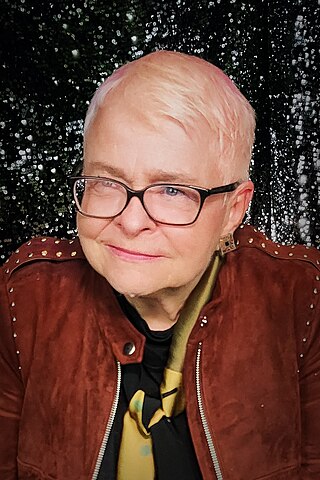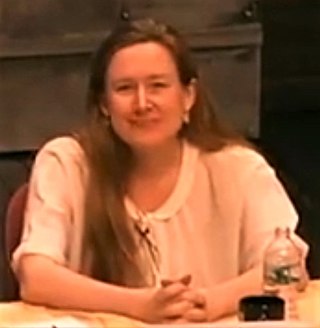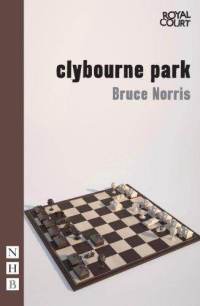Related Research Articles

Who's Afraid of Virginia Woolf? is a play by Edward Albee first staged in October 1962. It examines the complexities of the marriage of a middle-aged couple, Martha and George. Late one evening, after a university faculty party, they receive an unwitting younger couple, Nick and Honey, as guests, and draw them into their bitter and frustrated relationship.
Crimes of the Heart is a play by American playwright Beth Henley. It is set in Hazlehurst, Mississippi in the mid-20th century. The play won the 1981 Pulitzer Prize for Drama and was nominated for the Tony Award for Best Play. In 1986, the play was novelized and released as a book, written by Claudia Reilly.

Bonnie Blair Brown is an American theater, film and television actress. She has had a number of high-profile roles, including in the play Copenhagen on Broadway, the leading actress in the films Altered States (1980), Continental Divide (1981) and Strapless (1989), as well as a run as the title character in the comedy-drama television series The Days and Nights of Molly Dodd, which ran from 1987 to 1991. Her later roles include Nina Sharp on the Fox television series Fringe and Judy King on the Netflix series Orange Is the New Black.

Donald Margulies is an American playwright and academic. In 2000, he won the Pulitzer Prize for Drama for his play Dinner with Friends.

Paula Vogel is an American playwright who received the 1998 Pulitzer Prize for Drama for her play How I Learned to Drive. A longtime teacher, Vogel spent the bulk of her academic career – from 1984 to 2008 – at Brown University, where she served as Adele Kellenberg Seaver Professor in Creative Writing, oversaw its playwriting program, and helped found the Brown/Trinity Rep Consortium. From 2008 to 2012, Vogel was Eugene O'Neill Professor of Playwriting and department chair at the Yale School of Drama, as well as playwright in residence at the Yale Repertory Theatre.

Suzan-Lori Parks is an American playwright, screenwriter, musician and novelist. Her play Topdog/Underdog won the Pulitzer Prize for Drama in 2002; Parks was the first African-American woman to receive the award for drama. She was named one of the 100 most influential people in the world by Time magazine in 2023.
Eurydice is a 2003 play by Sarah Ruhl which retells the myth of Orpheus from the perspective of Eurydice, his wife. The story focuses on Eurydice's choice to return to Earth with Orpheus or to stay in the underworld with her father. Ruhl made several changes to the original myth's story-line. The most noticeable of these changes was that in the myth Orpheus succumbs to his desires and looks back at Eurydice, while in Ruhl's version Eurydice calls out to Orpheus perhaps in part because of her fear of reentering the world of the living and perhaps as a result of her desire to remain in the land of the dead with her father. Ruhl's script has been explicitly written so as to be a playground for the designer of the sets.
Will Eno is an American playwright based in Brooklyn, New York. His play, Thom Pain was a finalist for the Pulitzer Prize in Drama in 2005. His play The Realistic Joneses appeared on Broadway in 2014, where it received a Drama Desk Special Award and was named Best Play on Broadway by USA Today, and best American play of 2014 by The Guardian. His play The Open House was presented Off-Broadway at the Signature Theatre in 2014 and won the Obie Award for Playwriting as well as other awards, and was on both TIME Magazine and Time Out New York 's Top Ten Plays of 2014.
Amy Freed is an American playwright. Her play Freedomland was a finalist for the 1998 Pulitzer Prize for Drama.

Sarah Ruhl is an American playwright, poet, professor, and essayist. Among her most popular plays are Eurydice (2003), The Clean House (2004), and In the Next Room (2009). She has been the recipient of a MacArthur Fellowship and the PEN/Laura Pels International Foundation for Theater Award for a distinguished American playwright in mid-career. Two of her plays have been finalists for the Pulitzer Prize for Drama and she received a nomination for Tony Award for Best Play. In 2020, she adapted her play Eurydice into the libretto for Matthew Aucoin's opera of the same name. Eurydice was nominated for Best Opera Recording at the 2023 Grammy Awards.

Jayne Houdyshell is an American actress known for her performances on stage and screen. She earned her first Tony Award nomination for her Broadway debut as Ann in the play Well in 2006. Since then, she has received four more Tony Award nominations for her performances in the revival of Stephen Sondheim's musical Follies in 2012, the new play by Lucas Hnath A Doll's House, Part 2 in 2017, and the revival of Meredith Willson's The Music Man in 2022. She won the Tony Award for Best Featured Actress in a Play for the 2016 play The Humans.

Quiara Alegría Hudes is an American playwright, producer, lyricist and essayist. She is best known for writing the book for the musical In the Heights (2007), and screenplay for its film adaptation. Hudes' first play in her Elliot Trilogy, Elliot, A Soldier's Fugue was a finalist for the 2007 Pulitzer Prize for Drama. She received the 2012 Pulitzer Prize for Drama for Water by the Spoonful, her second play in that trilogy.
In the Next Room (or The Vibrator Play) is a 2009 play by Sarah Ruhl, published by Samuel French. It concerns the early history of the vibrator, when doctors allegedly used it as a clinical device to bring women to orgasm as treatment for "hysteria." Other themes include Victorian ignorance of female sexual desire, motherhood, breastfeeding, and jealousy. The play was nominated for three 2010 Tony Awards.

Katori Hall is an American playwright, screenwriter, producer, actress, and director from Memphis, Tennessee. Hall's best known works include the hit television series P-Valley, the Tony-nominated Tina: The Tina Turner Musical, and plays such as Hurt Village, Our Lady of Kibeho, Children of Killers, The Mountaintop, and The Hot Wing King, for which she won the Pulitzer Prize for Drama.

Clybourne Park is a 2010 play by Bruce Norris inspired by Lorraine Hansberry's play A Raisin in the Sun (1959). It portrays fictional events set during and after the Hansberry play, and is loosely based on historical events that took place in the city of Chicago. It premiered in February 2010 at Playwrights Horizons in New York. The play received its UK premiere at the Royal Court Theatre in London in a production directed by Dominic Cooke. The play received its Chicago premiere at Steppenwolf Theatre Company in a production directed by Steppenwolf ensemble member Amy Morton. As described by The Washington Post, the play "applies a modern twist to the issues of race and housing and aspirations for a better life." Clybourne Park was awarded the 2011 Pulitzer Prize for Drama and the 2012 Tony Award for Best Play.
Pam MacKinnon is an American theatre director. She has directed for the stage Off-Broadway, on Broadway and in regional theatre. She won the Obie Award for Directing and received a Tony Award nomination, Best Director, for her work on Clybourne Park. In 2013 she received the Tony Award for Best Direction of a Play for a revival of Who's Afraid of Virginia Woolf? She was named artistic director of American Conservatory Theater in San Francisco, California on January 23, 2018.

Melancholy Play: A Contemporary Farce is a play by Sarah Ruhl that premiered in 2002 at the Piven Theatre in Evanston, Illinois. It follows the sometimes melodramatic bank teller, Tilly, and her emotion-driven adventure with several other characters.

Martyna Majok is a Polish-born American playwright who received the 2018 Pulitzer Prize for Drama for her play Cost of Living. She emigrated to the United States as a child and grew up in New Jersey. Majok studied playwriting at the Yale School of Drama and Juilliard School. Her plays are often politically engaged, feature dark humor, and experiment with structure and time.
Fairview is a 2018 comedy play written by Jackie Sibblies Drury. The play was co-commissioned by Berkeley Rep and Soho Repertory Theatre. The play follows a middle class African-American family as they prepare for a birthday dinner for their grandmother only to be watched by four white people.

Kimberly Akimbo is a 2021 musical with music by Jeanine Tesori, and lyrics and book by David Lindsay-Abaire. It is based on Lindsay-Abaire's 2001 comedy of the same name.
References
- 1 2 Hernandez, Ernio. "Ruhl Rules as World Premiere Comedy 'Clean House' Opens at Yale Rep, Sept. 23" Playbill, September 23, 2004
- ↑ Rizzo, Frank. "Review. 'Clean House' Variety, September 26, 2004
- ↑ "'Clean House' Listing" scr.org, accessed October 15, 2015
- ↑ "'The Clean House' Goodman" goodmantheatre.org, accessed October 15, 2015
- ↑ Clean House woollymammoth.net
- 1 2 Gans, Andrew and Simonson, Robert. "Ruhl's Popular The Clean House Opens Oct. 30 at Lincoln Center Theater" Playbill, October 29, 2006
- ↑ Pincus-Roth, Zachary. "'The Clean House' Cleans Up Jan. 28" Playbill, January 28, 2007
- ↑ "'The Clean House' 2006" lortel.org, accessed october 15, 2005
- ↑ " 'Clean House' Study Guide" csulb.edu, accessed September 30, 2016
- ↑ "Theatre Ontario Festival 2015 Awards". Theatre Ontario. Archived from the original on 2020-08-15.
- ↑ Rooney, David. "Review: ‘The Clean House’" Variety, October 30, 2006
- ↑ Isherwood, Charles. "Theater Review. Always Ready With a Joke, if Not a Feather Duster" The New York Times, October 31, 2006
- ↑ Marks, Peter. "Clean House" Washington Post, July 19, 2005
- 1 2 Als, Hilton. "House Calls" The New Yorker, November 13, 2006
- ↑ "Pulitzer Prize for Drama, Citation" pulitzer.org, accessed November 30, 2015
- ↑ Simonson, Robert. "John Patrick Shanley's 'Doubt' Wins 2005 Pulitzer Prize for Drama" Playbill, April 4, 2005